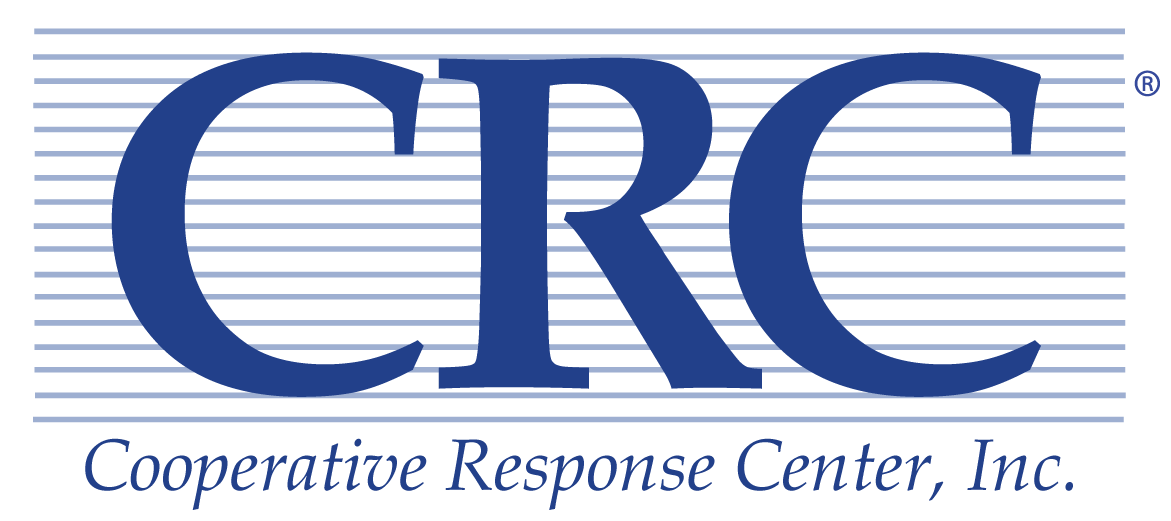Every day members of Cooperative Response Center, Inc. (CRC) tout the benefits of using the company's contact center services for their utilities' call handling needs. For many, CRC's call handing and dispatch services offer a welcome relief for utility employees who no longer have to cover the company's incoming calls 24x7.
With the onset of the coronavirus pandemic and the limitations caused by social distancing, most businesses, including electric utilities, have had to close their doors to the public while maintaining a business-as-usual approach to the organization's day-to-day operations. As more utility offices choose to close their doors to the public, a number of CRC contact center members have opted to send all of their consumer calls to CRC during this time.
Decatur County REMC, an 8,000-meter distribution cooperative located in Greensburg, Indiana, serves three counties that have been identified as having the highest positive case rate per-capita of COVID-19 in the Midwest. Accordingly, in March the cooperative closed its office to the public as a safety measure and chose to send all of its consumer calls to CRC to handle. Before that, the cooperative typically used CRC's call handling and dispatch services only after hours.
"We are very concerned with the health and well-being of our employees and members," explained Crystal Greathouse, billing and member services manager at Decatur County REMC. "So, by utilizing CRC's services, we can help slow the spread of the virus in our heavily affected area and work to keep our team safe. With CRC as a resource, our team is able to safely work from home during the pandemic while still providing excellent customer service to our members."
While the pandemic has altered Decatur County REMC's operations the utility continues to conduct business almost-as-usual.
"The office is closed to the public, office employees are working remotely, and line crews are being dispatched from their homes," she said. "In an effort to promote social distancing, we have a rotating schedule of two-to-three employees reporting to the office two days a week to check mail and run payments. We did not have the capability to transfer phones directly to employee phones, thus we chose to send all calls to CRC."
Greathouse explained that any calls that require follow-up from the utility are sent to her who then route calls to employees working from home to handle. With regard to dispatching line crews, Decatur County REMC's operations manager contacts line crews during normal business hours and CRC takes over dispatching responsibilities after hours, as usual.
Cooperative Light & Power (CLP) in Two Harbors, Minnesota, is another CRC member that is sending all consumer calls to CRC at this time. The 6,200-meter utility implemented a no-public-contact policy at its office on March 16 and notified CRC early on about their decision. One week later, a confirmed case of COVID-19 occurred in their service territory and CLP implemented a work-from-home response.
Beginning March 30, all incoming calls were transferred to CRC and has remained that way since. With CRC's assistance, the contact information of any callers that require follow-up assistance is emailed to a central contact at CLP, which has enabled CLP staff to take care of members with a good response time.
With state and federal governments considering the reopening of businesses and relaxing the restrictions of social distancing, CLP is also considering working a half-crew in their office starting April 27.
"Even then, CLP will need the services of CRC as we have more incoming lines than what we will be able to handle with a half-staff," said Spring Detlefsen, office manager at CLP. "CRC has been an excellent and responsive partner during this pandemic."
As CRC supports its membership during this difficult time, it is also taking the necessary precautions to keep its own employees safe. With each of its three contact centers housing from 75-to-100 customer service representatives (CSRs) each, social distancing can be a challenge. As a result, CRC quickly created a remote agent work option in March so that CSRs have the option to work from home. Currently about 30% of CRC's CSRs are working from home which is expected to be above 50% in the near future. Currently employees in CRC's alarm monitoring center remain working in the office due to having enough space for employees to maintain proper social distancing. If need be, the equipment is available to answer alarms from home.
"Like our membership, we want our employees to be safe and have the ability to work from home," said Chris Holt, president and CEO at CRC. "We know and appreciate we are part of the emergency preparedness plans of most of our membership. Our membership can rest assured that CRC has the tools in place to help them through business closures while also taking the precautions we need to keep our employees safe while working."
For more information about CRC's services and how we can help your organization, contact one of our regional business managers at 800.892.1578 or info@crc.coop.
CRC Lends Full Support to Utilities During Coronavirus Prevention Restrictions
